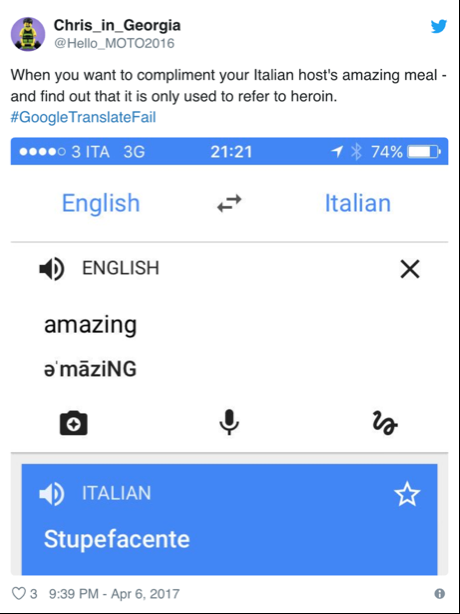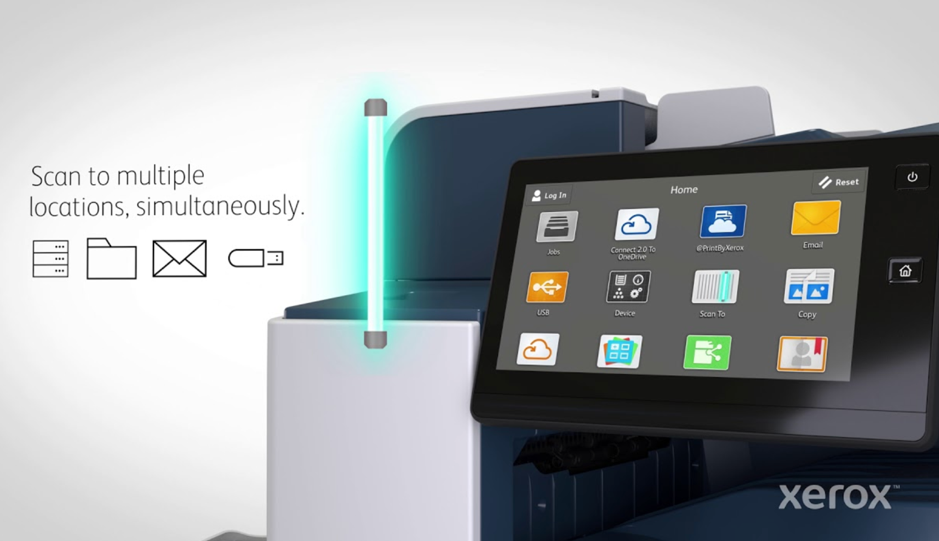Introduction
In this article I'm exploring the importance of language and how using Artificial Intelligence may enhance the customer service experience, and why your organisation should implement a fresh approach to an old problem.
There are many facts and myths about language in the United Kingdom, and the essence of this article is to dispel a few of the myths and to state the case as to why the facts demand greater resources to enable effective cross-cultural communication. It is the author’s opinion that artificial intelligence systems have a vital role to facilitate this communication, and that it is as relevant to a restaurant as it is to a large corporation, or to providers pf public services, whether they be government, health, not-for-profit, education or other.
Our diversity of language
Of the 250 languages spoken in London, more than 53 are in common usage. This linguistic diversity has contributed significantly to the growth of our nation, and our capital remains unequalled in hosting so many foreign speakers.
How diverse are we? Consider that of London’s population of 8 million, more than 1.7 million people do not have English as a first language, and census data shows us that more than 100 languages are spoken in every borough. According to the Office of National Statistics, of that 1.7 million, 320,000 cannot speak English well or even at all. This statistic is reflected nationally too: of the 3.3 million respondents to the 2011 census who listed English as a second language, 726,000 could not speak English well and 138,000 could not speak English at all.
Proficiency in English, or rather the lack of it, has a social cost too: citing again from the ONS, ‘around 300,000 residents aged 3 and over in England and Wales had ‘Not Good’ general health and could not speak English well or at all’.
In further analysis by the Daily Telegraph, it was reported that in one school 342 of the 360 pupils say Punjabi is their first language while just six are recorded as speaking English. Official statistics revealed there are classrooms where Polish, Bengali, Somali, Gujurati, Arabic, Tamil and the Afghan language Pashto are spoken ahead of English.
A particularly British problem
Brits are famous for not speaking foreign languages. According to a survey published by the European Commission the British are officially the worst language learners in Europe. Whereas 51% of Europeans can speak English, and 11% can speak three foreign languages, a shocking 62% of British cannot speak any language other than English.
In our schools, the teaching of Mandarin Chinese has outpaced that of German and Russian, while French and Spanish remain popular. How is this going to satisfy the 38.8 million tourists arriving in Britain over 2019, while they spend their £24.9 billion? [Source: Visit Britain].
As a part of Europe, geographically even if perhaps not for long politically, our centralised view of the World is not enough. ‘Fog in the Channel, Europe Cut Off’ screamed the famous (but probably rather apocryphal) headlines of the 1930’s. Now it must be recognised that the dominance of English is on the wane, and our internal services and outward-looking trade efforts must be re-doubled if we are to nurture our residents, visitors, and also to develop international trade opportunities.
Google Translate? Not yet!
In 2017, Lane Greene, writing in The Economist, wrote an excellent article: “Machine Translation: Beyond Babel”, with the argument that human translators may be an endangered species. Perhaps this was premature?
Much amusement may be had from experimenting with Google Translate, especially when it offers suggestions such as ‘Stupafacente’ – the Italian slang for heroin – as the translation of the English superlative ‘Amazing’.

We’ve all seen bizarre translations while on holiday, whether instructions on road signs, menus etc., but what of indecipherable instructions on product literature? How do we fare when communicating with our overseas clients?
To give credit where it’s due, Google Translate often succeeds moderately well for simple, precise, phrases. The real problems appear when the user inputs complex sentences, or when converting ‘awkward’ language pairs. English to Dutch can be highly successful, but Portuguese to Russian can be atrocious.
Suffice to say, Google Translate is fine for good ‘low risk’ translations, but it remains entirely inadequate for any serious business communications.
A business alternative to Google Translate
In the video above, produced by Xerox™, the problem of the non-English speaking businessman is solved by the restaurant’s waitress in moments. In this example, the waitress simply scanned the printed menu with her Xerox™ multi-functional printer and, choosing from more than 44 languages, a translated menu was produced. Impressively, even the formatting was retained.
In terms of functionality, the device uploaded the scan to the Xerox Translate and Print App, which uses artificial intelligence technology to provide instant, machine translations. With no user training, and well formatted documents as the output, this is an excellent representation of the ease with which language barriers may be overcome.
But what of requirements for absolute error-free translations, such as for commercial contracts? The user of this application may select the translation standard and invoke a human specialist. True, this takes much additional time, but the online resource is there, and it’s far more timely than sourcing a local translator, while also being far less costly.
With a mobile app too, the Xerox Translate and Print App may be used by users working with printed documents or with a multitude of digital formats: upload an MS-PowerPoint file, select your target language, and the file returned will be your same PowerPoint in your target language!
Understanding the Xerox ConnectKey© ecosystem
The Xerox Translate and Print App is one of almost 100 ‘apps’ available within the ConnectKey platform now standardised across the small to mid-office printers distributed globally under the Xerox AltaLink and VersaLink banners.
Featuring a full-colour tablet-sized interface, ConnectKey is designed to improve business productivity by enabling organisations to embed a wide selection of business applications on the most widespread and useful devices present in any office environment.

From customer service to health and safety
Consider some of the applications where this technology might be deployed to great effect:
The entire hospitality industry stands out as an obvious beneficiary, from hotels to tourist information centres and everywhere in between. The author has often interceded to help staff and the public in countries as diverse as Germany, Thailand, and across Africa. Imagine Spanish to English, then English to French … or the same with Swahili!
Our entire social services infrastructure is collapsing under the weight of trying to deliver services too. Schools with students of foreign origin are in much the same situation as our prisons, hospitals, GP surgeries and court systems.
Commercially orientated businesses must also consider the comprehension of their labour force: the construction industry is a major employer of foreign language speakers, these days hailing from various Balkan nations. Given that the health and safety laws can result in charges for corporate manslaughter, is it good enough to merely assume the employee or sub-contractor understood the required safety instructions? The answer is a categorical negative.
Have you read:

⏱ 5 Second Summary
Part of our Artificial Intelligence series
Using Artificial Intelligence to deliver accurate and meaningful language translations enhances trade, customer service, and staff relations. Such techniques are now essential for the modern business, especially across areas such as Human Resources, legal, health and safety.
Recent Posts
Humperdinck Jackman
Director of Consulting Services
Humperdinck has a 30-year career spanning Document Management Systems (DMS), data protection, Artificial Intelligence, Data Protection and Robotic Process Automation. With many articles published in print internationally, he believes the advances in office technology are such that we're entering the 4th Industrial Revolution. Now Director of Marketing and Consulting Services at Advanced UK, he's as active with clients as he is in endeavouring to write original blog articles.



